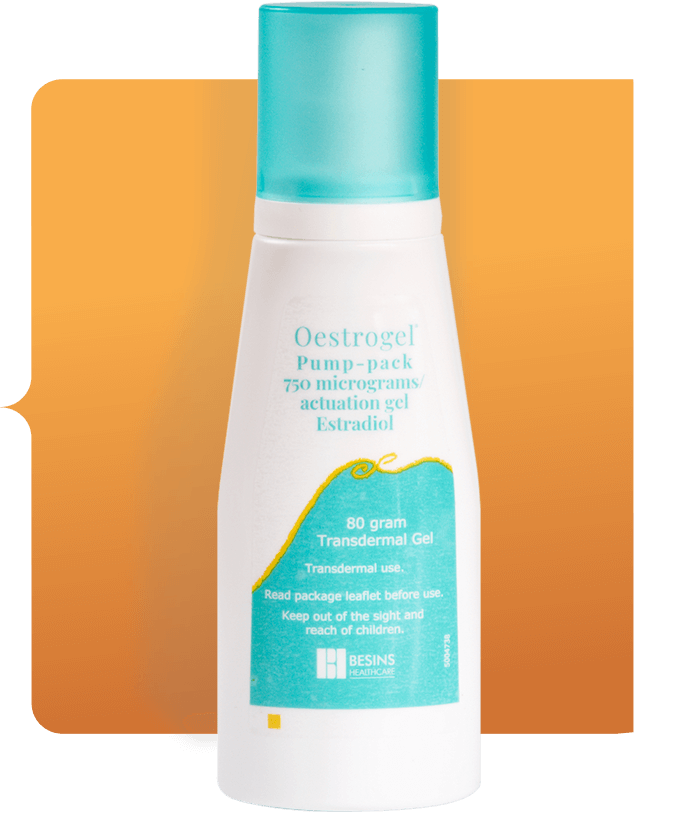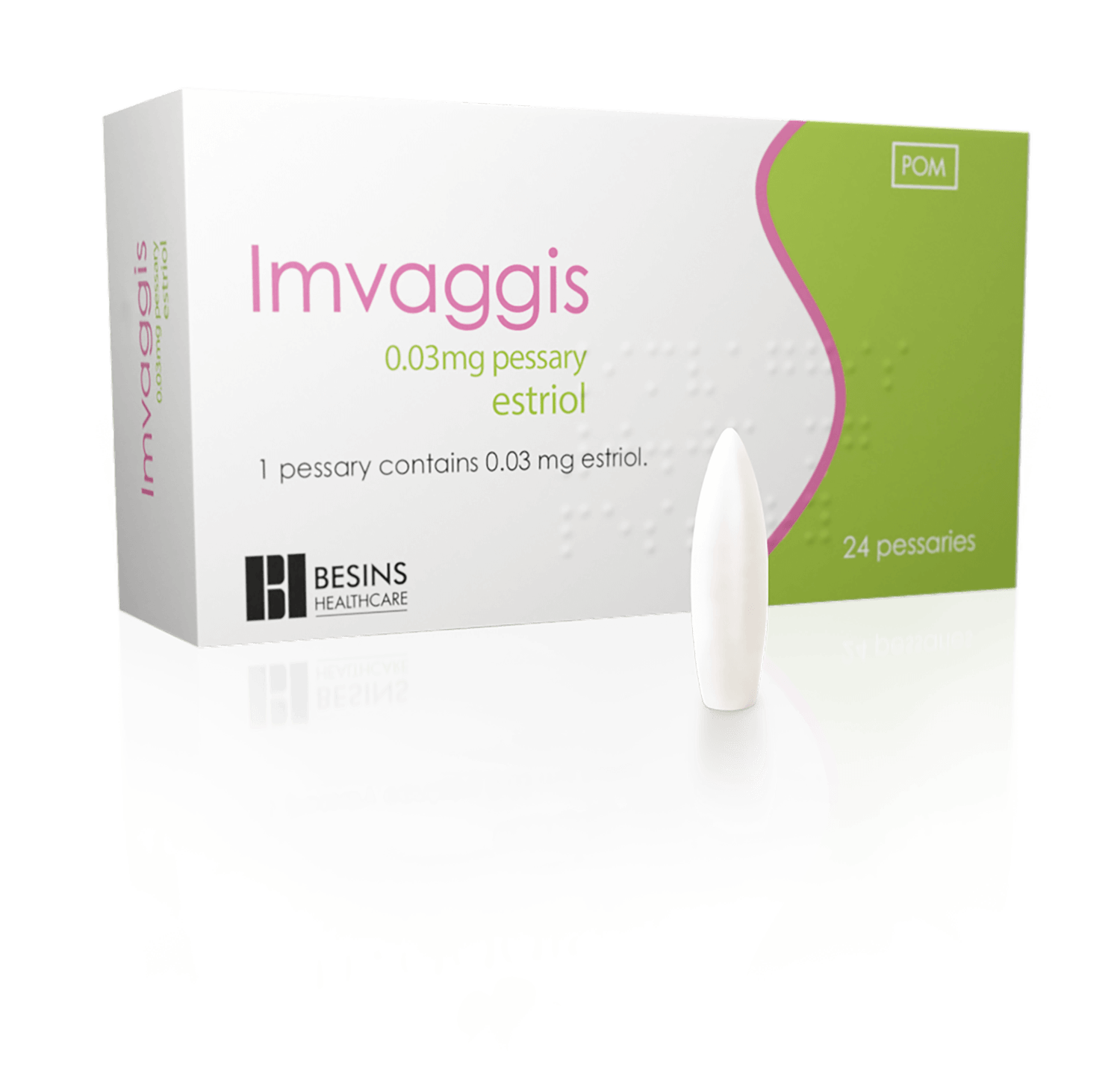Prescribing information for Utrogestan (micronised progesterone) 100mg
Prescribing Information UTROGESTAN (progesterone) 100 mg CAPSULES
For full prescribing information, including side effects, precautions and contraindications, please consult the Summary of Product Characteristics (SPC).
Presentation: Soft white capsule containing 100 mg micronised progesterone. Indication: Adjunctive use with oestrogen in post-menopausal women with an intact uterus as HRT. Dosage and Administration: Oral capsules which should not be taken with food as this increases the bioavailability of the capsules. The recommended dose is 2 capsules daily at bedtime for twelve days in the last half of each therapeutic cycle (Day 15 to 26). Withdrawal bleeding may occur in the following week. Alternatively, 1 capsule can be given at bedtime from Day 1 to Day 25 of each therapeutic cycle, withdrawal bleeding being less with this treatment schedule. Dose for elderly is the same. Not indicated in children. For full details of usage see SPC. Contraindications: Known past or suspected breast cancer; hypersensitivity to progesterone , soybean lecithin, peanut or any of the excipients; undiagnosed genital bleeding; known or suspected estrogen-dependent malignant tumours (e.g. genital tract carcinoma); thrombophlebitis; thrombophilic disorders; acute liver disease or history of liver disease; previous or current thromboembolism disorders; cerebral haemorrhage; porphyria, breast-feeding. Warnings and Precautions: HRT should only be initiated for symptoms that adversely affect quality of life. A careful appraisal of the risks and benefits should be undertaken at least annually and HRT should only be continued as long as the benefit outweighs the risk. Women should be encouraged to be aware of their breasts and report any changes to their doctor or nurse. Investigations, including appropriate imaging tools, e.g. mammography, should be carried out in accordance with currently accepted screening practices, modified to the clinical needs of the individual. Utrogestan 100mg is not a treatment for premature labour, in confirmed pregnancy or as a contraceptive. Conditions which may need supervision: The following may recur or be aggravated during treatment with Utrogestan 100 mg: leiomyoma or endometriosis; risk factors for thromboembolic disorders, risk factors for oestrogen dependent tumours (e.g. 1st degree heredity for breast cancer), hypertension, liver disorders (e.g. liver adenoma); diabetes mellitus; cholelithiasis; migraine or severe headache; systemic lupus erythematosus; endometrial hyperplasia; epilepsy; asthma; otosclerosis; depression; photosensitivity. Therapy should be immediately discontinued if the following occur: jaundice or deterioration in liver function, significant increase in blood pressure, new onset of migraine, pregnancy, unexplained loss of vision, proptosis or diplopia, papilloedema, retinal vascular lesions. The use of HRT is associated with an increased risk of deep vein thrombosis (DVT) or pulmonary embolism. The overall evidence suggests an increased risk of breast cancer in women taking combined oestrogen-progestagen and possibly also oestrogen-only HRT, that is dependent on the duration of taking HRT. Combined oestrogen-progestagen are associated with an increased risk of ischaemic stroke. Utrogestan 100 mg Capsules contain soybean lecithin and may cause hypersensitivity reactions (urticarial and anaphylactic shock in hypersensitive patients). As there is a possible relationship between allergy to soya and allergy to peanut, patients with peanut allergy should avoid using Utrogestan 100mg Capsules. FOR THE FULL LIST OF WARNINGS AND PRECAUTIONS PLEASE CONSULT SECTION 4.4 OF THE FULL SPC. Interactions: Drugs known to induce the hepatic CYP450-3A4 (e.g. barbiturates, anti-epileptic agents (phenytoin, carbamazepine), rifampicin, phenylbutazone, bromocriptine, spironolactone, griseofulvin, some antibiotics (ampicillins, tetracyclines) and herbal products containing St. John’s wort, may increase metabolism and the elimination of progesterone. Ketokonazole and other inhibitors of CYP450-3A4 such as ritonavir and nelfinavir may increase bioavailability of progesterone. Utrogestan 100mg may raise the plasma concentration of ciclosporin, diazepam, tizanidine. Aminoglytethimide reduces plasma concentrations of medroxyprogesterone acetate and megestrol. Progesterone may enhance or reduce the anticoagulant effect of coumarins. Progesterone antagonises the anticoagulant effect of phenindione. Use of ulipristal acetate reduces efficacy of progesterone. An adjustment in anti-diabetic dosage may be required. Breakthrough bleeding may occur when using terbinafine with Utrogestan 100mg. They may also affect the laboratory tests of hepatic and/or endocrine functions. Pregnancy and lactation: If pregnancy occurs during medication, Utrogestan 100mg should be withdrawn immediately. Prescription of progesterone beyond the first trimester may reveal gravidic cholestasis. Utrogestan 100mg is not indicated during breast-feeding. Progesterone is distributed into breast milk. Effects on ability to drive and use machines: Utrogestan 100mg may cause drowsiness and/or dizziness. Undesirable effects: Frequency not known, from post-marketing experience: Abdominal pain, nausea, fatigue, headache, somnolence, dizziness, vaginal haemorrhage, pruritus. The following risks apply in relation to systemic oestrogen/progestogen treatment: breast cancer; endometrial cancer; ovarian cancer; venous thromboembolism; coronary artery disease; ischaemic stroke. For further information on side effects and risk estimates please consult the SPC of both products. Overdose: Symptoms may include drowsiness, somnolence, dizziness, or fatigue. NHS Price: Utrogestan 100 mg capsules – £5.13 for 30 capsules. Legal category: POM. Marketing Authorisation Number: Utrogestan 100 mg capsules – PL 28397/0003. Marketing Authorisation Holder: Besins Healthcare, Avenue Louise, 287, Brussels, Belgium. Date of preparation of prescribing information: October 2020 BHUK/2020/098






